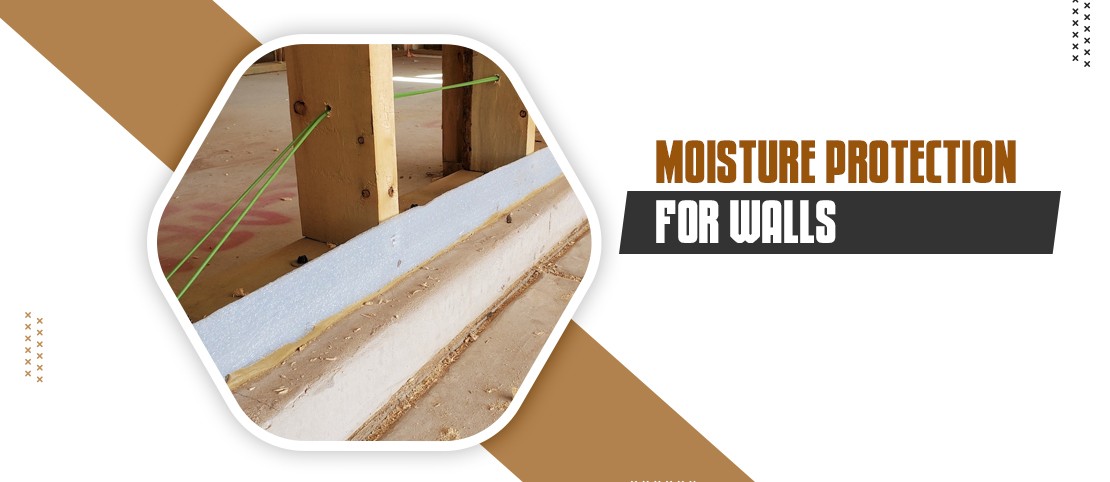How To Protect Walls From Moisture Damage
Moisture can wreak havoc on homes and buildings, especially when it comes to walls. One of the most common issues that arise due to moisture is wall seepage. Wall seepage occurs when water penetrates through walls and causes damage, leading to mold growth, structural damage, and other serious issues. If left unaddressed, wall seepage can even compromise the safety and stability of your home. Therefore, it is crucial to take the necessary steps to protect your walls from moisture and prevent wall seepage. In this blog post, we will discuss effective strategies that you can use to protect your walls from moisture and prevent wall seepage. These tips will help you keep your walls dry, safe, and healthy for years to come.
Identify The Source Of Moisture
Before you can protect your walls from moisture, you must first identify the source of the moisture. There are many potential sources of moisture in the home, including leaks in the roof or plumbing, high humidity, and condensation. To identify the source of the moisture, you can start by looking for signs of water damage, such as water stains on the walls or ceiling, damp spots, or musty odors. Once you have identified the source of the moisture, you can take steps to address the issue and prevent further damage.
Apply Waterproofing Coatings
One of the most effective ways to protect walls from moisture is to apply a waterproofing coating. Waterproofing coatings are designed to prevent water from seeping into the walls, which can help to prevent wall seepage. There are many different types of waterproofing coatings available, including acrylic, polyurethane, and epoxy coatings. Each type of coating has its own unique properties and benefits, so it is important to choose the right one for your specific needs.
When applying a waterproofing coating, it is important to follow the manufacturer's instructions carefully. This may involve cleaning the walls, applying a primer, and then applying the coating in thin, even layers. It is also important to ensure that the coating is completely dry before painting or finishing the walls.
Install Proper Ventilation
Proper ventilation is essential for preventing moisture buildup in the home. When moisture builds up in the home, it can lead to high humidity, which can contribute to wall seepage. To prevent this, you can install exhaust fans in bathrooms and kitchens, open windows on a regular basis, and ensure that air can circulate freely throughout the home. By keeping the air moving, you can reduce the risk of condensation and mold growth, which can cause wall seepage.
Maintain Your Home
Regular maintenance is also essential for protecting your walls from moisture. This may involve cleaning gutters and downspouts to ensure that rainwater is properly directed away from the home, fixing leaky pipes and faucets, and repairing any roof or exterior walls damage. By addressing these issues promptly, you can prevent moisture from seeping into the walls and causing damage.
Use Water-Resistant Materials
Another effective way to protect walls from moisture is to use water-resistant materials in your home. This may include using moisture-resistant drywall in areas where moisture is common, such as bathrooms and kitchens. You can also use water-resistant paint and sealants on the walls to help prevent wall seepage. In addition, you can choose flooring materials that are water-resistant, such as tile or vinyl flooring, to help prevent moisture from seeping into the walls.
Install a Vapor Barrier
A vapor barrier is a material that is installed between the walls and the insulation in your home. It is designed to prevent moisture from seeping into the walls and causing damage. Vapor barriers are typically made from plastic or foil and installed on the warm side of the insulation. By installing a vapor barrier, you can help to prevent moisture from seeping into the walls and causing wall seepage.
Address Landscaping Issues
Landscaping issues can also contribute to wall seepage. If your home is situated on a slope, for example, water can run down the slope and pool against the walls of your home. To prevent this, you can install drainage systems to redirect water away from your home. You can also create a buffer zone between your home and any nearby bodies of water, such as rivers or lakes, to prevent water from seeping into the walls.
Monitor Humidity Levels
Humidity levels can have a significant impact on the amount of moisture in your home. To prevent wall seepage, it is important to monitor the humidity levels in your home and take steps to maintain a healthy level of humidity. This may involve using a dehumidifier in areas where moisture is common, such as basements or bathrooms. Maintaining a healthy humidity level can reduce the risk of wall seepage and other moisture-related issues.
Seek Professional Help
If you have tried these methods and still have issues with wall seepage, it may be time to seek professional help. A professional contractor can help you identify the source of the moisture and develop a plan to address the issue. They can also help you select the best waterproofing coatings, ventilation systems, and other solutions to protect your walls from moisture and prevent wall seepage.
In Conclusion…
Wall seepage is a common problem that can cause damage to your home if left untreated. By following the tips outlined in this blog post, you can protect your walls from moisture and prevent wall seepage. Whether you are applying waterproofing coatings, installing proper ventilation, or addressing landscaping issues, there are many effective ways to prevent moisture from seeping into your walls and causing damage. By taking proactive steps to maintain your home and address issues promptly, you can enjoy a dry, healthy living environment for years to come.
Related Posts
Comments
By accepting you will be accessing a service provided by a third-party external to https://www.mbt-techserv.com/



